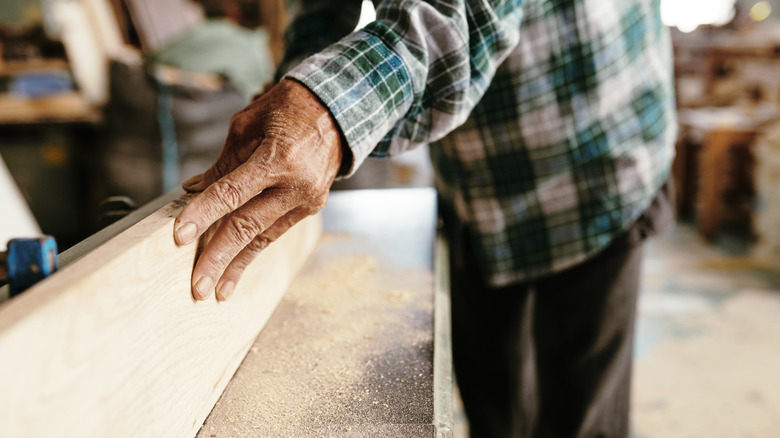What Is A Woodworking Jointer & What Does It Do?
When woodworking, starting off with smooth, flat, and well-squared wood can put you at a real advantage. Sometimes, you have to put some work in to get there, however. This is where having the right woodworking tools can really come in useful, with jointers being fundamental for preparing materials.
Woodworking jointers make sure that wood is as flat and straight as possible. This makes them especially handy when it comes to fixing warped or bowed wood before you craft something with it. Jointers can also be used to fix issues with wood edges, like any twisting or cupping, so that they can join together neatly. As well as this, they can also be used to help make wood smooth and sleek by levelling out any unwanted grain.
Making sure that wood panels are flat and straight when you work with them can be important for two reasons. Firstly, making sure the corners are well-squared off and the panels are level can make for a better end result — an uneven shelf isn't a lot of use for anyone. Secondly, and perhaps most importantly, taking bowed wood to other tools like table saws can lead to kickback. So, processing it with a jointer first prevents that and helps keep your woodworking space safer.
Different jobs might call for different types of jointers
There are a few different types of jointers on the market, each with varying price points, functionality, purposes, sizes, and even volumes. A few of them include hand, tabletop, or long jointers, and closed or open stand jointers. All of these jointers are generally categorized in one of a few ways: benchtop, handheld, or stationary.
Open and closed stand jointers, as well as long jointers, are large and stable. Open and closed jointers are quite similar; with "open" having the motor on display, and "closed" protecting it behind a metal case. Long jointers look especially similar to closed jointers, but are highly adjustable. Other jointers, like hand or tabletop jointers, are smaller and tend to be cheaper.
Which jointer you should use depends on the size of the wood being worked with, the desired finish, how much power you need, and the amount of space available for it. Larger stationary jointers can cut more and are more durable, while smaller benchtop jointers favor portability and convenience. The nature of your woodworking project and how regularly you plan on using it will decide which type of jointer you should use.

